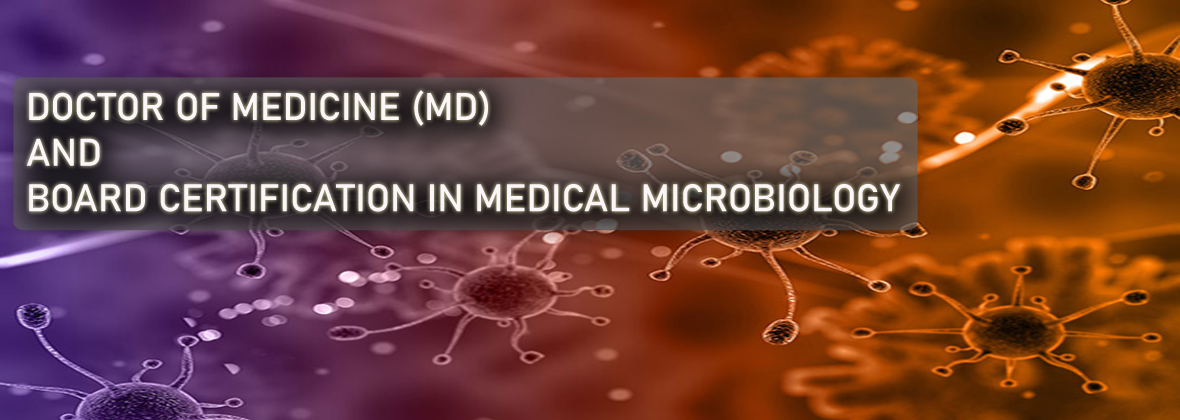
![]()
The MD Medical Microbiology is the 2nd stage of a 3-part training programme conducted by the PGIM’s Board of Study in Microbiology for those who wish to specialize in the field of Medical Microbiology. The first MD programme was conducted in the early 1980’s. Since then it has been reviewed and revised on several occasions to serve the evolving needs of the country in relation to the field of Medical Microbiology, and taking into account changes in training capacity. The current MD training programme was first put into effect about 8 years ago. It consists primarily of in-service training in hospital microbiology laboratories, supplemented by other activities that reinforce specific, identified training needs. Training is conducted by designated trainers in several centers approved by the Board for this purpose.
![]()
A. Scientific Basis of Medical Microbiology
- aetiology, pathogenesis, epidemiology and prevention of infectious diseases
- Laboratory investigations for the diagnosis of common bacterial, viral, fungal and parasitic diseases.
- Sterilization procedures and laboratory investigations to check sterility
- Antimicrobials and antimicrobial susceptibility testing of common pathogens
B. Laboratory skills
- Process samples sent for routine microbiological investigations in a clinical diagnostic laboratory, or public health laboratory
- Report on microbial pathogens in clinical samples and their antimicrobial susceptibility
- Work with due attention to quality assurance and laboratory safety.
- Instruct on collection and transportation of samples for microbiological diagnosis
C. Laboratory Management
- Manage the microbiological laboratory services and the work environment of a microbiology laboratory.
D. Patient management
- Advise clinicians on the investigation and management of patients with infections use of antimicrobials
E. Infection control
- Oversee infection control activities in the hospitals the trainee is working
F. Public Health
- Work in an interdisciplinary team to investigate and control infectious diseases of public health importance
G. Research
- Design, conduct and report on a short, medical microbiology related, research project
![]()
- Hold a medical degree registered with the Sri Lanka Medical Council
- Complete an internship recognized by the Sri Lanka Medical Council
- Complete one-year work experience in Sri Lanka, after internship
- Postgraduate Diploma in Medical Microbiology examination or the Postgraduate Diploma in Clinical Microbiology conducted by the PGIM. Not more than 4 years should have elapsed after the trainee has passed either examination.
Please refer to the relevant prospectus for the most up to date information. The prospectus of a particular programme contains official information pertaining to a programme approved by the Board of Management, University Senate and the University Grants Commission